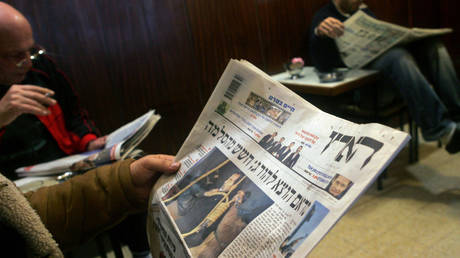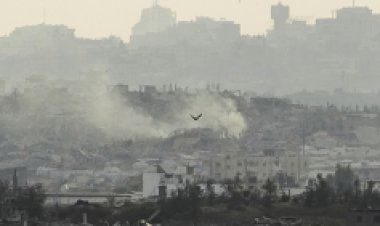Israel imposes sanctions on its oldest newspaper
The Israeli government has given the green light to a boycott of Haaretz, the nation's oldest newspaper, in response to a series of critical articles.

Shlomo Karhi, the communications minister, announced that his proposal received unanimous approval from the cabinet. According to the minister, “We will not allow a reality in which the publisher of an official newspaper in the state of Israel will call for the imposition of sanctions against it and will support the enemies of the state in the midst of a war and will be financed by it.” He emphasized, “We advocate a free press and freedom of expression, but also the freedom of the government to decide not to fund incitement against the state of Israel.”
The proposal to boycott Haaretz was added to the cabinet meeting agenda shortly before the meeting and received the endorsement of Prime Minister Benjamin Netanyahu, as reported by Haaretz.
Founded in 1918, Haaretz is the longest-running newspaper in Israel. It has published numerous reports alleging criminal conduct by high-ranking Israeli officials and the military, and it has historically had a contentious relationship with the government. The newspaper has also been vocal in calling for an end to the conflict in Gaza and the release of hostages taken by Hamas.
The Israeli government justified its decision by citing "many editorials that have hurt the legitimacy of the state of Israel and its right to self-defense," particularly referencing remarks made by Haaretz publisher Amos Schocken during a speech in London in which he expressed support for sanctions against the government.
In his speech, Schocken described the Israeli government as operating a “cruel apartheid regime on the Palestinian population,” though he later clarified that he does not view Hamas as “freedom fighters.”
Following the passage of the resolution, which was reportedly approved without legal scrutiny, Haaretz accused Netanyahu of attempting to “dismantle Israeli democracy,” labeling the boycott as “opportunist.”
This action marks another instance of the Israeli government's tightening grip on the media amid the ongoing conflict in Gaza. Earlier in the year, the Israeli parliament passed a law that permits the temporary closure of foreign media outlets considered a threat to national security. Additionally, in May, the government barred Al Jazeera from operating within Israel and shut down its local bureau, alleging that the Qatari network was aiding Hamas.
Ian Smith for TROIB News












